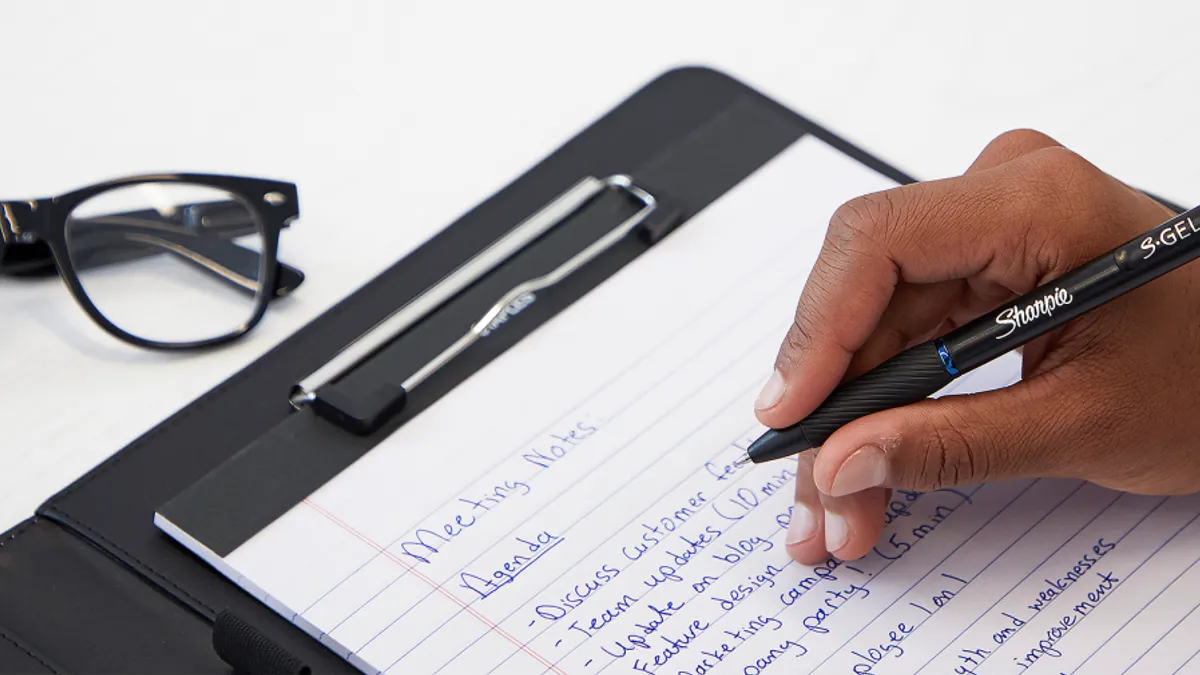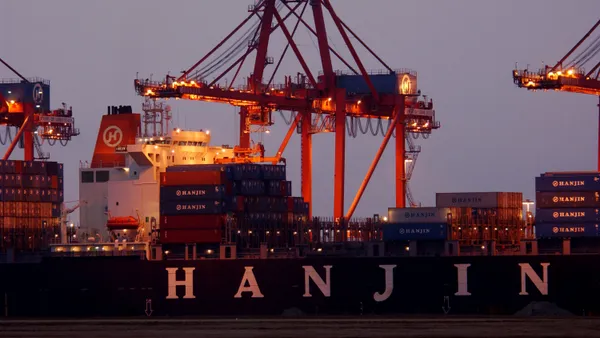Dive Brief:
- Newell Brands CFO Chris Peterson said manufacturing in the U.S. allowed the company's writing business unit to be better positioned than "at least one" of its competitors, which imports products from Asia.
- "The vast majority of what we sell in writing is manufactured in the U.S." Peterson said on the company's Q2 earnings call. "So we are not in the business of dealing with ocean freight, port issues, availability of raw materials and components as we are on some of our other businesses."
- The lack of supply chain challenges led Peterson to say "supply could turn out to be a real benefit" in the writing business unit. President and CEO Ravi Saligram said Newell Brands gained market share on products like gel pens, as demand also grew.
Dive Insight:
The comments by Newell Brands executives reveal a hidden benefit of U.S.-based supply chains: lower risk exposure to import problems, whether that is delays in ocean freight or unfavorable currency exchange terms.
Newell Brands makes a variety of products, including Sharpie markers, Rubbermaid tupperware, Elmer glue, Yankee candles and Oster kitchen appliances. In turn, the company has wide visibility into the problems that are specific to an industry, and which ones signal a broader trend.
Peterson said most of their brands faced supply chain challenges in Q2, and they did not expect the challenges to improve in the near future.
"The challenges are largely due to ocean freight availability of containers, length of time it takes containerships to move from Asia to the U.S., trucking capacity in the U.S., labor availability in the U.S, some raw material and component availability depending on the business unit," Peterson said.
Coupled with a demand spike, executives said the supply chain challenges were creating significant headwinds.
"Overall, more than a third of our products are sourced from Asia, and that's why we do have some effects," Saligram said. "So yes, it's going to remain a bit of a challenge."
But Peterson was quick to note its writing business unit may benefit uniquely from the situation.
"The good news is that this is not an environment that's unique to Newell," Peterson said. "This is an environment that all of our competitors face."
And for writing products, in particular, availability of supply during the August 2021 back-to-school shopping season is key to gaining market share.
A KPMG survey of 1,000 shoppers found customers were planning to spend 9% more on back-to-school shopping in 2021, compared to last year. And both retailers and suppliers hoped to prepare for this shopping surge by importing the products they need in an attempt to restock.
"Panjiva's data indicates that there has been a marked recovery in imports of back-to-school products compared with 2020, though shipments are well below 2019 levels" Christopher Rogers, a senior researcher at Panjiva, wrote in an S&P Global Market Intelligence Note.
While Rogers' note focused on products like kids shoes, apparel, backpacks and laptops, bill of lading data published on ImportYeti suggests writing products were in higher demand in 2021 than 2019.
Pen and pencil imports rebounded in 2021
The data is consistent with the demand Newell Brands saw for its products.
"The rebound across most writing categories as more schools return to in-person learning to finish out the school year in combination with share gains in key categories such as pens, presentation markers, permanent markers and highlighters translated into terrific consumption in the U.S." Saligram said.
When asked if Newell Brands had enough supply to meet the pent-up demand, Saligram cited the fact that core sales of the writing business increased more than 25%, which is the average for all of the company's products.
"And then our market share is up," Saligram said. "So when I look at all of that, I feel very bullish about writing."














